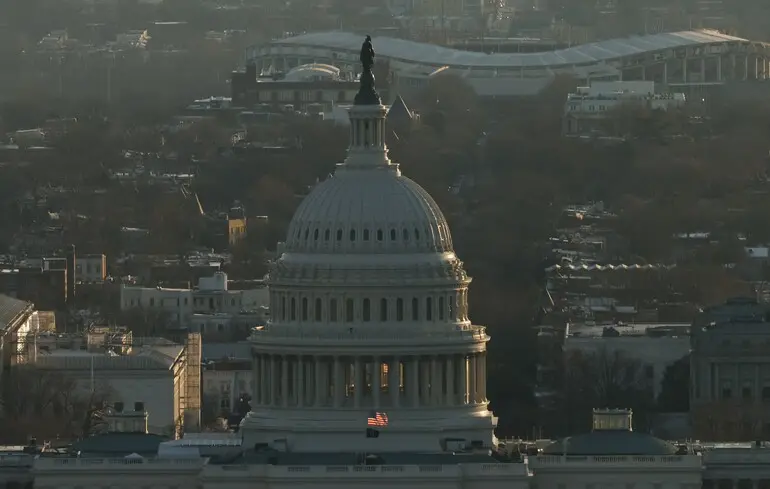Economic Impact of the US Government Shutdown: How Much Does the Halt in Operations Cost?

The prolonged government shutdown in the United States has become one of the most severe political crises in the country in recent years.
Analysts estimate that each week of government inactivity costs the U.S.
economy at least 15 billion dollars of GDP.
This means that due to governmental paralysis, the American economy could face significant losses, especially if the shutdown extends for several months.
Experts warn that such a state leads to widespread unemployment — monthly losses due to government closures could reach 43,000 federal employees unemployed.
Additionally, over 1.9 million federal civil servants are on unpaid leave or working without pay, primarily residents of the Washington area.
Internal documents from the White House suggest that the government plans to send reports to Congress explaining the economic consequences.
The situation is complicated by disagreements over funding for Obamacare subsidies: Republicans dispute the financing of healthcare benefits to undocumented immigrants, which the administration claims are illegal.
The White House blames Democrats for using the shutdown to pursue political advantages and to fire government employees.
Spokesperson Kush Detsa’i stated that all economic repercussions are the responsibility of the opposition in Congress.
However, public opinion polls show that most Americans blame Republicans for the crisis, although the general consensus is that both parties share responsibility.
Amid economic pressure stemming from Trump’s tariff policies, data published by ADP on October 1 reveal that in September, the U.S.
lost about 32,000 jobs in the private sector.
The Council of Economic Advisers reports that a one-month government shutdown could reduce consumer spending by $30 billion, affecting growth and employment.
Experts warn that the long-term shutdown will significantly worsen the country’s financial outlook, impacting social security, transportation, healthcare, and food programs for the vulnerable.
Currently, there are no clear resolution deadlines, and analysts do not expect a quick end to the shutdown as the political crisis intensifies.

